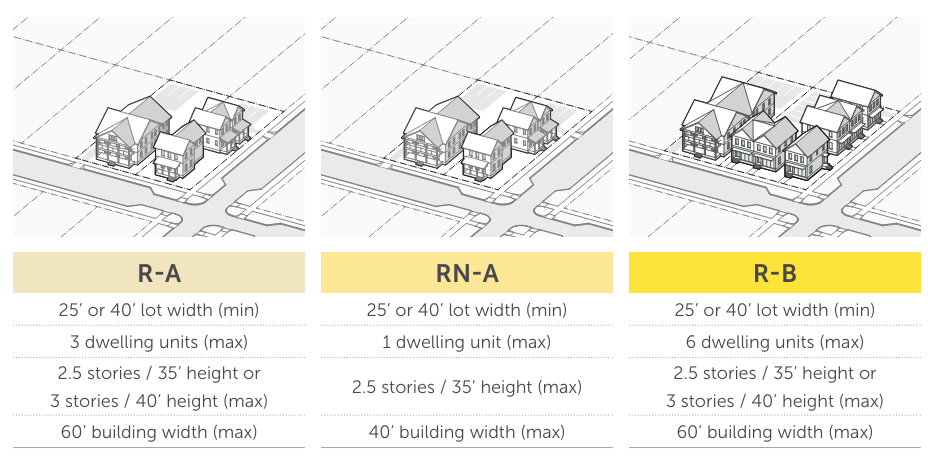Insights from CVRHP Discussion Group Meetings
By: TJPDC Staff
Since our last full partnership meeting, members have hosted context-specific discussion groups (Urban, Rural, and Homeless) to engage individuals interested in affordable housing, as well as professionals in related fields, local stakeholders, and subject matter experts. These sessions have served as forums to discuss and identify critical issues, explore barriers, and strategize on how the partnership can provide support.
Partners were asked at the March 2024 meeting to identify specific groups they wish to participate in, with the intent of pursuing broader representation and inclusivity of underrepresented voices in future discussions and actions. To maximize accessibility, all meetings have been conducted online.
This format ensures that regional perspectives are heard and aims to attract new participants, particularly grassroots stakeholders, with the advantage of minimal commitment (typically three meetings). The discussions aim to represent diverse viewpoints, including non-profit, for-profit, government, and resident perspectives.
At the conclusion of these meetings, the discussion group leader will present their top three initiatives to the partnership for consideration and potential action.

INITIAL MEETINGS: IDENTIFYING ISSUES
The first meetings of the Urban and Rural discussion groups have been held and focused on identifying all relevant issues and collectively prioritizing them by vote. Here is an overview of some main topics that were discussed.
URBAN
- FUNDING SOURCES:
-
- Identified difficulty in quick acquisition of property when available.
- Challenges with volatile construction costs.
- Preservation of affordability after LIHTC periods end.
- Need for additional subsidies and incentives for affordable housing.
- DEVELOPABLE LAND AND INFRASTRUCTURE:
-
- Limitations due to a shortage of developable urban land.
- Inconsistencies in land use policies across jurisdictions in the urban ring.
- Challenges with developing increasingly smaller infill parcels and neighborhood resistance.
- Need for working capital for rapid land acquisition. Consider land banks as a potential solution.
- Issues with existing and future affordable housing being located in food deserts.
- Concerns regarding transportation connectivity and pedestrian infrastructure.

- EDUCATION AND COMMUNITY ENGAGEMENT:
-
- Clarification of new zoning ordinances in Charlottesville, particularly for homeowners, to empower the creation of gentle density.
- Addressing NIMBY-ism and community opposition to affordable housing projects.
- Explored the benefits of a regional economic analysis to understand and explain housing’s local economic impact to the community.
- Challenges in attracting retail tenants to mixed-use residential buildings.
- Ensuring comprehensive engagement of critical stakeholders in housing discussions.
- CLARITY ON DEVELOPMENT PROCESS:
-
- Priority for predictable and expedited review processes for development applications.
- FAIR HOUSING AND RESIDENT SERVICES:
-
- Concerns about property management by absentee landlords.
- Issues related to housing quality and tenant well-being.
- Education on fair housing laws and combating housing discrimination.
- Impact of reduced federal and state rental assistance on family stability.
- Need for consistent funding to support onsite resident services.
- UVA (University of Virginia):
-
- Potential for UVA-owned land to support housing development efforts.
- Discussion on UVA’s influence on the local tax base and its role in affordable housing funding.
- Exploration of collaboration opportunities with UVA and other stakeholders.
- POLITICAL PRESSURES VS ECONOMIC PRESSURES:
-
- Recognition of varying priorities influenced by political and economic factors among stakeholders.
- Determine the politically impactful issues that may be hurdles to further advance of housing solutions.
RURAL
- DATA COLLECTION AND FUNDING SOURCES:
-
- Identified challenges in obtaining accurate rural housing data.
- Highlighted the need for reliable data to inform planning and resource allocation.
- Discussed difficulties in accessing financing due to project scale and tax credit limitations.
- INFRASTRUCTURE AND DEVELOPMENT:
-
- Infrastructure identified as a significant bottleneck for rural housing.
- Challenges in new constructions and renovations due to infrastructural and density issues.
- Emphasized the need for more resources and streamlined processes to expedite development efforts.
- AFFORDABLE HOUSING FINANCING STRATEGIES:
-
- Focus on bridging the affordability gap in rural housing.
- Proposed innovative financing strategies, including community regional funds.
- Emphasized the importance of integrating affordable housing units into private developments.
- BALANCING COMMUNITY IMPACT:
-
- Discussed the balance between affordable housing and community integrity.
- Highlighted benefits of housing development like job creation.
- Advocated for solutions prioritizing community well-being alongside housing initiatives.

FOLLOW UP MEETINGS: ACTION STEPS FOR TOP VOTED ISSUES
Subsequent sessions will concentrate on formulating actionable steps to tackle the identified top priorities. The Rural discussion group has taken the lead by convening its second meeting. Recommendations for these action steps will be presented to the partnership for further deliberation and decision-making after the third and final meeting.
RURAL
- INFRASTRUCTURE:
- Emphasized the need for infrastructure improvements to facilitate rural housing development.
- Discussed strategies to secure funding and streamline processes for infrastructure projects.
- EDUCATION OF LOCAL POLITICIANS ON HOUSING AS ECONOMIC DEVELOPMENT:
- Planned presentations to local boards emphasizing the economic benefits of housing initiatives.
- Aimed to secure support for staff allocation to pursue Community Development Block Grant (CDBG) funding.
- LAND TRUST AND LAND BANKS:
- Explored the establishment of land trusts and land banks to preserve affordable housing.
- Discussed potential partnerships and funding sources to support these initiatives.
- FUNDING SOURCES:
- Identified various funding streams, including CDBG funds, to support affordable housing projects.
- Discussed the importance of leveraging existing resources and collaborating with regional partners.
GET INVOLVED:
 If you have an interest in participating in the ongoing discussion groups, please reach out to the discussion group leader of your sphere of interest for information on the next meeting:
If you have an interest in participating in the ongoing discussion groups, please reach out to the discussion group leader of your sphere of interest for information on the next meeting:
Rural: Margaret Clair (margaretclair@nccdf.org)
Urban: Ned Gallaway (ngallaway@albemarle.org)
Homeless: Shayla Washington (shayla@blueridgehomeless.org)
Virginia Poverty Law Center (VPLC) is the state support center for all civil legal aid programs in Virginia. VPLC’s work breaks down systemic barriers that keep low-income Virginians in the cycle of poverty through advocacy, education, and litigation. Visit vplc.org for more information.
- Improved Manufactured Home Lot Rental Act (MHLRA) (Del. Delaney, Sen. Hashmi)
- HB 572 / SB 232 increases protections for manufactured home park residents and removes confusion from the MHLRA by limiting the amount of late fees park owners can charge for unpaid rent, granting a right of redemption for tenants facing eviction for unpaid rent, prohibiting the automatic renewal of a lease if the tenant gives proper notice of termination, and clarifying the allowable reasons for eviction.
- Increased Relocation Funds for Manufactured Home Park Residents (Del. Krizek)
- HB 1397 requires a manufactured home park owner to provide each resident with $5,000 to cover relocation expenses if their rental agreement is terminated due to the sale of the park to a buyer planning to redevelop or change its use.
- Automatic Eviction Record Expungement (Del. Hope)
- HB 73 requires courts to automatically expunge eviction records for dismissed cases after 30 days and for nonsuited cases after 6 months.
- Early Lease Termination for Survivors of Domestic Violence (Del. Delaney)
- HB 764 gives victims of domestic violence or sexual abuse the right to terminate a rental agreement early if they have a permanent protective order and give proper written notice of termination.
- Increased Maximum Building Code Violation Fines (Del. McQuinn, Sen. Bagby)
- HB 578 / SB 538 increases the maximum fine localities can impose for repeated violations of the Uniform Statewide Building Code, defined as three or more offenses of the same nature within a ten-year period.
- Single Exits for Residential Buildings Workgroup (Del. McClure, Sen. VanValkenburg)
- HB 368 / SB 195 creates an advisory group to evaluate and suggest changes to the Uniform Statewide Building Code that would permit the use of single exit stairways in multifamily residential buildings under six stories and thus allow more dense and diverse housing in Virginia.
- Increased Community of Opportunity Program (COP) Tax Credits (Del. Willett)
- HB 1203 increases the amount of tax credits available for landlords renting to Housing Choice Voucher holders in high opportunity areas and earmarks a portion specifically for use in rural regions.
- Community Revitalization Funds (Del. Coyner, Sen. Locke)
- HB 478 / SB 49 enable all localities to establish Community Revitalization Funds, which can be used to prevent neighborhood deterioration through residential and infrastructure development
